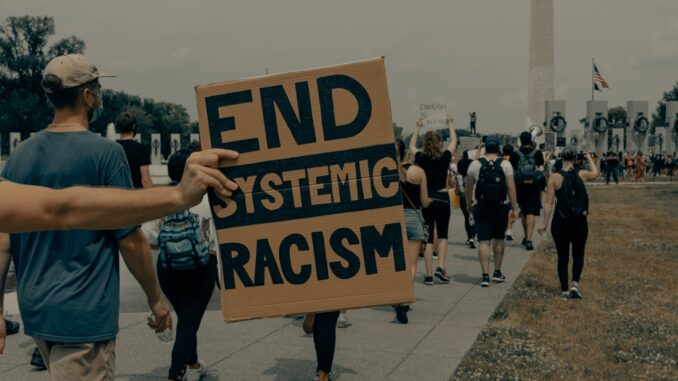
By CASEY NICCOLI
Student Reporter
Dr. Russell Lowery-Hart, president of Amarillo College, wants to show how a top five rising star community college can be a beacon of light in the fight against racism. But Lowery-Hart admits that he’s still learning what that looks like.
“I think we’re trying to figure it out. I think the first step, and that’s really where we are, is just learning how to talk about race,” he said. “It’s a topic that we are scared to address. It’s wrapped in language that some don’t understand and because they don’t know what words to use, they just avoid the conversation altogether,” said Lowery-Hart.
In 2020, in response to the death of George Floyd and other racial injustices going on in our country, AC’s faculty and staff went through implicit bias training in order to fulfill the goal of becoming anti-racist as part of AC’s strategic plan, “which as a concept, is pretty amazing,” Lowery-Hart said. “Implicit bias training is just to help us explore ourselves and to analyze our own lived experience and who shaped it and who is shaping it now. For instance, if you say you want to be anti-racist, but the people that inform your worldview and shape your experiences look exactly like you, it’s hard to understand what someone else’s lived experiences are,” explained Lowery-Hart.
Melodie Graves, associate director of advising and a community activist, said, “I also think people must get educated about other people. I think we have been taught to shun people who are different instead of looking for ways that we’re similar, so let’s talk about how alike we are and build on that.”
“We want to not just be not racist, which is a neutral statement, but be anti-racist, meaning that we don’t want to be neutral about it. We want to, as a college, understand where we have areas for improvement, understand what our students’ experience, what our colleagues’ experiences are, and make sure that we are actively promoting fairness and equity and being the foundation for our community to address racism as a region,” Lowery-Hart said.
Amber Richardson, a psychology major, said, “I think that people need to be more educated about race in all aspects. Educating one another is the only way that we will have progression and that means having conversations that are not always comfortable to have,” said Richardson.
When the campus closed due to COVID in the spring of 2020, according to Graves, the talks about race abruptly came to a halt. “The pandemic really hurt our ability, because we were meeting every other week, and the conversations stopped because people had other things going on and right now those other things have taken over what we should be doing,” said Graves. “In the fall, I am going to start the Black Student Union again, but I think having different groups that can come together is important because in the different groups we are separated,” explained Graves, “You’re over here in the LGBTQIA group and you’re over here in the Hispanic Association, right, but we need a platform where we can all come together.”
“Leadership is very important when you’re in these groups, because your leadership has to say, this group is open for everybody, because we want people who don’t look like us to come in here, because we need them to get these messages back to their group of friends because that’s how the message grows,” said Graves.
“I think the message that I want every student to feel when they walk on our campuses is that we are committed to loving you to success,” said Lowery-Hart.
Lowery-Hart said racism has an impact on students.
“I think anyone that has experience racism experiences a level of trauma that makes it even harder to trust, to engage, to build relationships and I’ve seen in my own family with two white, blonde-haired, blue-eyed kids that are college students and an older, black, tall, gay man who’s our eldest son and their experiences in our community are different,” he explained. “They all love this community. They’ve all been shaped by it, and they are all proud to claim it. But my son Chris engages in our community, and we engage his interactions with the community with a level of fear that I’ve never felt from my two blonde-haired, blue-eyed kids and so I worry about the collective impact of that trauma that Chris has had to live with his whole life,” said Lowery-Hart.
Lowery-Hart says that the next year will be about rebuilding relationships and continuing to educate both students and staff about anti-racism. “I think we’ve been given a platform and we must honor it and use it and learn from it. And that’s my goal of anti-racism is that we’re going to lean in and learn how to unify ourselves and some common understandings by listening and connecting and honoring,” he said.

Leave a Reply